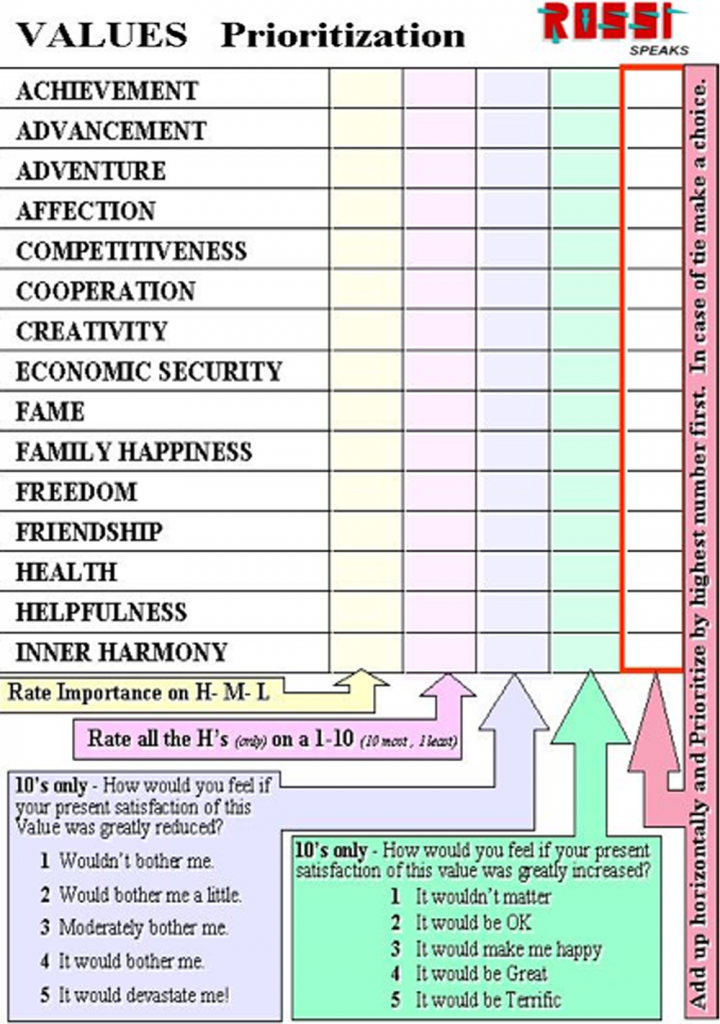ARE YOU SUCCESSFUL, ‘THAT DEPENDS’
By ROSSI Speaks
 Fact: A watched clock moves faster if there is a lot to be done simply because you’re too busy to watch it. When the year is almost over and many of you may ask, “Can I finish what I started within my calendar goal?” The answer, “That depends.” Webster defines ‘depend’ as:
Fact: A watched clock moves faster if there is a lot to be done simply because you’re too busy to watch it. When the year is almost over and many of you may ask, “Can I finish what I started within my calendar goal?” The answer, “That depends.” Webster defines ‘depend’ as:
Main Entry: de·pend
Pronunciation: di-'pend
Function: intransitive verb
Etymology: Middle English, from Middle French dependre, modification of Latin dependEre, from de- + pendEre to hang — more at PENDANT
Date: 15th century
1 : to be determined, based, or contingent <life depends on food> <the value of Y depends on X>
2 : to be pending or undecided
3 a : to place reliance or trust <you can depend on me> b : to be dependent especially for financial support
4 : to hang down
Just like Webster gives us a choice for the use and meaning of the word depend, we have a choice to complete our tasks by the calendar goal date, or at least to give it our biggest push. Year-end pushes are not unique. It seems that much of our lives have been structured to react to and be constrained by the calendar. So when we ask the above question, frequently we answer, “That Depends.”
Using Webster’s definition #1, fill in the blank: ‘success depends on __________’. How many said, “Money, Cash, Income, Dollars, or Earnings?” Money is only currency used to survive in this ‘Work to Eat World’. Yes, we need money to survive. Yes, ‘show up and get paid’ should be a daily goal and currency is what we are paid, but is currency a necessity of success?
At the beginning of the year, many of my students prioritize their personal values, (see Values Prioritization checklist at end) an exercise I have used and shared with students, family, and friends. Understanding how Personal Values help us achieve, or keep us from achieving, our goals is a great life lesson.
Example: Betty, a single parent with 3 children, sets a goal to earn a lot of money. Knowing that if she doesn’t specifically define ‘a lot of money’ and what it takes to achieve this goal, it’s only a wish like saying she wants to win the Power Ball but doesn’t buy a Lottery ticket. Betty clearly defines ‘a lot of money’ as $100,000 and creates a plan outlining the tasks necessary to earn that amount by listing and selling real estate. Let us hypothetically say that her plan includes a 60 hour work week, which Betty accepts and resolves to do. However, Betty’s children, the loves of her life ages 3, 8, and 12, are very active in school, sports, and dance. Will Betty work the 60 hours a week to achieve her goal? No, in truth, time away from her children is against her values. Her goal of $100,000 income is incongruent with her values and, therefore, her values will take precedent. Values must be congruent with goals in order for them to be achieved.
Interestingly, after September 11th, 2001, an overwhelming number of people who completed the Values Prioritization list placed ‘Family Happiness’ as the top priority. In fact, 95% of ASPIRE™ (personal strategic planning curriculum offered by ROSSI Speaks, inc. www.rossispeaks.com ) participants did so. This being true, why is it that even they fill in the above blank as ‘money’ instead of ‘Family Happiness’? I believe the answer to that question is ‘Habit’.
From an early age, the importance of Money is ingrained within us. Our government, churches, teachers, and parents fret, even argue, over money. Entertainment, television, and print media all bombard us with messages that imply ‘money is everything’. The so-called Golden Rule turns green, “He who controls the gold makes the rules”. It’s easy to control a ‘work to eat world’ by controlling the money. The goal of many corporations is to do just that. Not get your money in big chunks, that’s too difficult, but to get your money a little at a time on a continuum. It’s obvious that “Three easy payments of $29.95” is easier to make than one payment of Ninety Bucks. Why do you think we are mailed credit cards by the hundreds and encouraged to use them freely. Corporate America wants us to all join in and sing, “I owe, I owe, it’s off to work I go.” Like cigarettes, credit becomes a habit, then a fear, fear of ‘not having enough money.’ Business uses the fact that, “people are more motivated by their fear of loss than they are their desire for gain” and creates dependency through credit.
Do I want to work harder so I can charge more? “That depends.” Webster’s #2 definition of ‘depends’ states; ‘to be pending or undecided’, which means It must not be decided. In the past, at the end of the calendar year, I would often get a queasy feeling, an unidentified feeling of dread that physically affected my attitude. It wasn’t until I began to write clearly defined goals, congruent with my values, that I understood what caused that feeling. It was ‘my indecision.’ Not having a plan of where I was going, and why, made my stomach jump. Similar to getting in the car to take a trip and asking, “Where are we going?” Or, in Betty’s case, “I’ll work 60 hours a week” knowing good and well she didn’t have 40 extra hours a week too work!
Will I write and prioritize my well-defined goals congruent with my values and create a plan? “That depends”, on who, for what? Webster’s #3 definition of ‘depend’ says, “3a: to place reliance or trust <you can depend on me”. Oh darn, that old depend on self deal again, unquestionably. Who else is responsible for you – your parents, boss, spouse, children, the Government? I think not, responsibility is uniquely individual. If you are hit by a car while crossing the street, was it the car’s fault? How about the driver of the car? Or is it YOU because you didn’t look both ways before crossing the street. You are the Scottie Dog or Shoe piece in the Monopoly Game of Life. It’s your sole responsibility to protect your piece.
Can you accept one hundred percent responsibility? “That depends.” Webster’s 4th and final definition says, “4: to hang down.” Well, don’t hang down your head and feel bad, most of us want someone or something else to be responsible for our actions, or lack there of. It’s human nature to want to be taken care of from time to time. And in our immediate past, we could work for ‘the man’ for 50 years and get a gold watch and a monthly retirement check or turn to our Government for social security. That kind of security no longer exists, or maybe never did, or wasn’t enough. The bottom line truth is, YOU are responsible for YOU. Your happiness, health, values, income, beliefs, and success are your responsibility. That doesn’t mean you get zero help from others, it just means that they are not responsible for you.
Okay, now back to the end of the year. Execute the following steps:
- Do or redo the ‘Values Prioritization Sheet’.
- Write three specific goals you want to accomplish or finish by year end. If they are not completed by that time, move the date.
- Prioritize them by asking, “Which one is more important to me?”
- Verify that these goals are congruent with your values.
- Rewrite each goal in present tense using all five senses as though it has been accomplished.
- Write prioritize and time/date six strategies necessary to accomplish each goal.
- Verify that the strategies are congruent with your values.
- Now, outline all the tasks necessary to accomplish each strategy and time/date them.
Congratulations, you’ve just created a Personal Strategic Plan. Review your Plan daily and watch the queasiness go away. Take a deep breath, relax, and smile that today you won’t have to wear depends.

